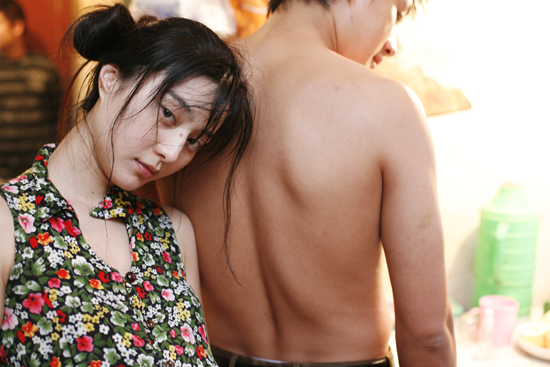|
Reviews of Recent Independent, Foreign, & Documentary Films in Theaters and DVD/Home Video
Directed by Li Yu Written by Li Yu & Fang Li Produced by Fang Li Director of Photography, Wang Yu Edited by Zeng Jian Released by New Yorker Films/Red Envelope Entertainment Starring: Tony Leung Ka Fai, Fan Bingbing, Tong Da Wei & Elaine Jin
Li and her producer Fang Li have devised an emotionally disturbing story. Augmented by brilliant performances and striking cinematography, the film creates a sense of what the new Beijing is like in a period of a significant economic boom. Without any references to the past, the multiple subplots lay out the myriad changes the city has undergone and how the rise class of the “nouveau riche” is changing the landscape.
Only meager redemption is found for these characters, who repeatedly turn on each other and on themselves, forging alliances and abandoning them as
part of a greater design that never goes as planned. Everything and every one have a price. It’s no wonder that the sexually-charged film has caused
such a stir with the strict Chinese censors. Li paints a dark portrait of the changes brought by the city’s growing wealth, resonating with many
pre-WWII American films, in which immigrants to the burgeoning city are subjected to the mental tortures of the elusive American Dream. This, in
part, is why the film works so well thematically. It is not just a story about China and its changing social hierarchy. It delves into themes that
are so universal that the story is not only a poignant allegory of modern Chinese life; the city
of the title could be replaced with any metropolis of the world.
Dustin L.Nelson
|

